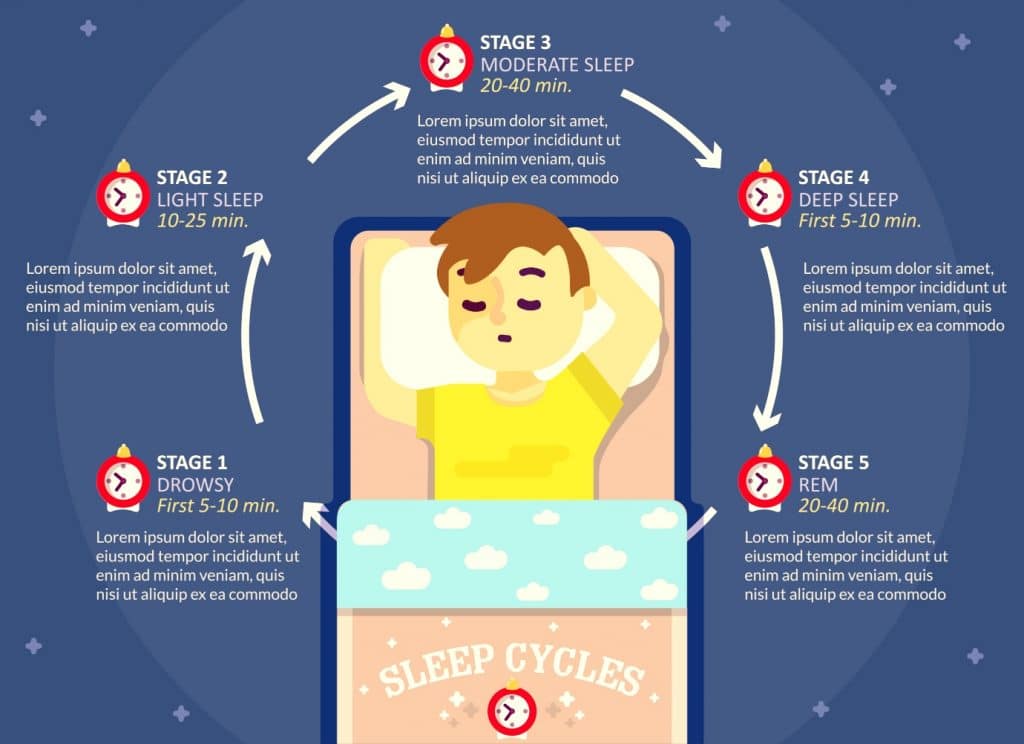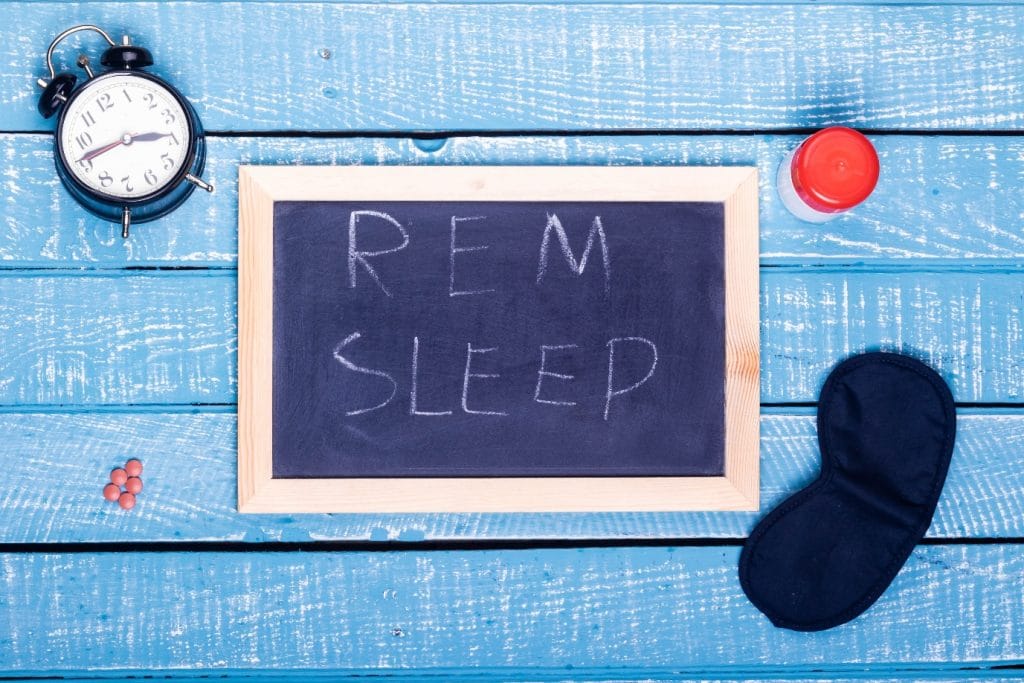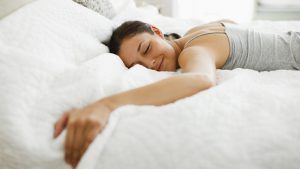
SLEEPING PROBLEM IN CHILDREN AND HOW TO DIAGNOSE
Recent studies show that nearly 30% of children have a sleep disorder at some point in their lives. How to diagnose it?

Brigita Kuhar
05.01.2020

Have you ever thought about how complex your sleep is? While sleeping, several complicated processes are happening, without which we would still be tired in the morning.
Humans sleep in five stages. During the first three, we are in a light sleep and in the fourth, deeper stage that starts 90 minutes after going to sleep, the REM phase follows, and we have the deepest dreams.
The whole sleep cycle is repeated four to five times during the night. Each phase has unique characteristics such as brain activity and depth of sleep, so we must sleep long enough to go through all stages of sleep.
First Stage – the light sleep stage
In the light sleep stage, we try to find the perfect sleeping position, adjust the pillow -whatever makes us feel comfortable. Within 10 minutes of the first phase we can change position up to 40 times!
Second Stage – still in the light sleep
In the more in-depth sleep stage, our eye movements stop, heart rate and brain activity slow down. Sudden, brief flashes of brain activity occur. The body is preparing for a night of deeper sleep, and the body temperature lowers. We spend about 15 minutes in this stage.
Third Stage – deep sleep stage
Eye movements and heart rates are slowly accelerating. If you wake up at this stage, you may be disoriented for a few minutes.
Fourth Stage- still referred to as deep sleep stage
In the deep sleep stage, we are knocking on the door of a very deep sleep when it would take the neighbour’s lawn mower to wake you up!
This is where our bodies become so active that we seem to be more awake than before. Breathing accelerates, our eyes move faster, muscles become motionless and the heart rate and blood pressure increase.
Stages 3 and 4 are crucial to feeling fresh when waking up and if too short, you will not feel as if you’ve had a quality sleep. Sleep walking and nightmares may occur during these stages, more commonly in children.
Fifth Stage – REM stage

We enter the REM stage (Rapid Eye Movement) between 90 to 120 minutes after falling sleep. The heart rate increases, blood pressure rises, the eyes move rapidly from left to right at an intensity of 50 to 60 times per minute, and the body is paralyzed. (Which is why we don’t roll out of bed!).
Brain activity is the highest during this stage, and dreaming is common. About 25 percent or 2 hours of our total sleep time is spent in the REM stage.
In the third and fourth stages, the slowest activities (Delta Waves) are recorded. In the fourth stage, which usually takes about half an hour, we are in a deep sleep, while in the first two phases, we sleep more lightly. After the fourth stage, the third usually follows, then the second and then the REM stage.

Research has proven that dreams are essential for good mental health. Psychologist Dr. S. Krippner researched dream therapy, including a study in which he woke respondents four to five times during the REM phase. Confusion and agitation were recorded during the three-day trial period. If it had been longer, the respondents would have started acting unreasonably, bordering on psychologically unstable.
The second group of subjects was awakened after the REM phase. Only fatigue and disorientation appeared without excessive nervousness.Dreams maintain a healthy mental balance and without them, we could become psychologically unstable. Without dreaming, we can lose touch with reality and hallucinate.
Dreams are still present in all five phases; occurring during the first four stages but to a lesser extent, when we dream more of realities – where we left our cell phone, what happened during the day? etc.
So, if you want to stay healthy and rested, get a good night’s sleep.

Recent studies show that nearly 30% of children have a sleep disorder at some point in their lives. How to diagnose it?

Enough sleep and regular physical exercise are essential for our health. Although everyone recognises this, it is not well known that the two activities influence each other.
In our latest blog we will explain how to get the most out of these two essential activities.

Do you know that a person spends 25 years sleeping?
Different sleep positions affect us in more ways than many of us are aware of! Find out how each sleep position affects our sleep and how you can improve your quality of sleep.
DIKA-MONT d.o.o.
Ul.A.Kačića Miočića 19
10 000 Zagreb
Croatia